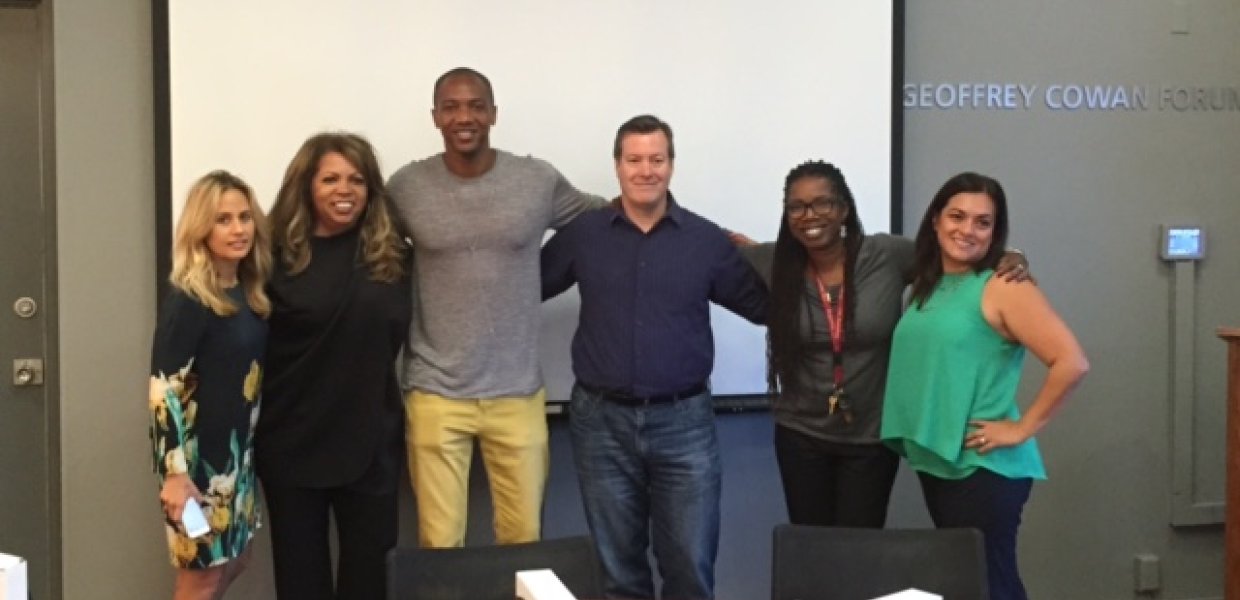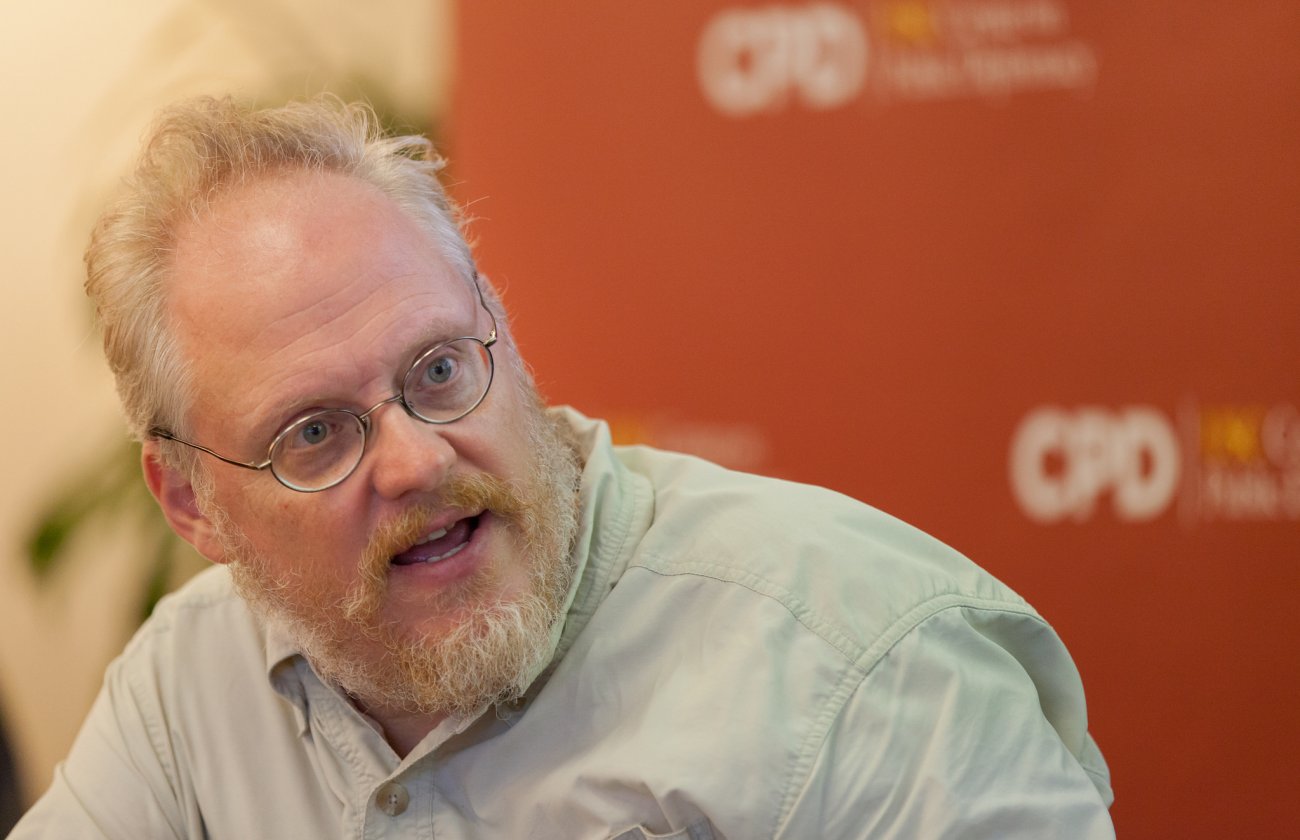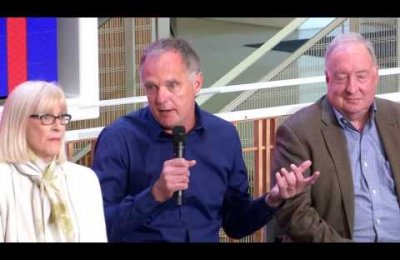USC Annenberg challenges students to think innovatively about the future of media, but equally important for students pursuing careers in the entertainment industry is understanding how the role of the journalist has changed in recent years.
Students in JOUR 505, “The Practice: Journalism’s Evolution as a Profession” had the opportunity to hear about those changes first-hand thanks to lecturer Miki Turner. Turner organized two entertainment journalism panels featuring a diverse range of journalists, publicists, actors and other guests for her classes on Tuesday, Sept. 22 and Wednesday, Sept. 23.
Turner, whose own background is in entertainment journalism, began recruiting for the panel in the summer, and called upon associates in the industry to provide students with as many different perspectives as possible.
“When I started out in entertainment 20 years ago, we did things a little differently than what’s done now,” Turner said. “Our coverage wasn’t as salacious, there were better boundaries, I think, and with the digital age everything is instant. We wanted to take a look at that with all of these top-notch industry professionals.”
The first group of panelists spoke to Turner’s students Tuesday in the ASC Geoffrey Cowan Forum. Guest speakers included: Nekesa Moody, Global Entertainment Editor for the AP; Dina Sansing of E! News; Bill Keveney, senior reporter with USA Today; Nicole Marostica, Director of ABC TV Group; Jawn Murray of AlwaysAList.com; Stephanie Frederic, CEO of FGW Productions; and J. August Richards, an actor and USC alum.
Panelists used the recent Emmy Awards and actress Amy Poehler’s #SmartGirlsAsk campaign to discuss red-carpet interviewing, as well as the importance of multiculturalism in newsrooms, the convergence of broadcast and online media, and how TMZ has revolutionized the way entertainment news is reported.
The panel held Wednesday in Wallis Annenberg Hall was open to the campus, where students heard from: entertainment journalist Rocsi Diaz; VH1 host Nina Parker; publicist Ellene Miles; Wall Street Journal reporter Joe Flint; Essence magazine entertainment director Cori Murray; Cynthia Wang, of People magazine; and Jackie Burke, an E! News producer and USC Annenberg alumna.
Panelists emphasized the importance for aspiring journalists to build and maintain connections in the industry, keep their social media platforms professional, and work for media outlets that align with their journalistic goals and beliefs.
“Choose the job that is going to be natural to what you write and what you do,” Diaz said. “Whoever you’re writing for and whatever outlet you choose to be associated with, make sure that’s a publication that you see yourself carrying on your resume for a very long time.”
Several students in attendance had questions about how to get started and stand out in the entertainment industry, with many panelists’ advice being to build contacts, be specific when writing cover letters, and be consistent with how you present yourself to others professionally. Journalists, including Wang, also advised students about how to get the most of out an internship experience.
“When you’re an intern, you’re learning two skills: one of them is whatever it is that the network or the publication is teaching you by you being on the job,” Wang said. “The second thing you’re learning is office culture, because that’s something you cannot learn in school. You have to learn who the big players are, what their positions are, what they do.”
Parker, who got her start in the industry during the early days of TMZ, rounded out the panel with a piece of advice that seemed to resonate with her fellow panelists and students alike.
“You’re not going to be smarter than everybody, you’re not going to be the most talented, but you show up, all the time,” Parker said. “Sometimes you have to outwork everybody.”
For those interested in pursuing entertainment journalism, including M.S. Journalism student Morgan Evans, hearing the first-hand experiences and advice of successful professionals currently working in the industry was especially encouraging.
“I think there’s a lot to be said to be said about doing what you love. A lot of people said that and that made me feel a lot better about going out there and following my passion,” Evans said. “It’s almost better hearing experiences from real people and people who are living it right now, that makes a huge difference.”
Though this wasn’t the first year Turner has hosted an entertainment journalism program for graduate students, she said the turnout by both panelists and students this year was notable.
“We did this entertainment panel last year but on a smaller scale, and this year because of the types of people that we were able to invite and attract I thought we should open it up to the whole campus,” Turner said. “Everybody really enjoyed it because we have a lot of students who are interested in covering entertainment, and my goal is to teach them...how to do it in a more substantive way than we see every day in different outlets.”
M.S. Journalism student Helen Floersh said she hadn’t considered pursuing entertainment journalism before attending the panel, but said the discussion changed her perspective on certain aspects of the industry and provided a real-life example of what she and her classmates have discussed throughout the course.
“Even just the diversity of the panelists themselves spoke to the way that things have changed, and I think that’s incredibly important,” Floersh said. “We’ve been talking about how things have changed in this class, and now we got to see it right in front of us, so it was really cool.”








